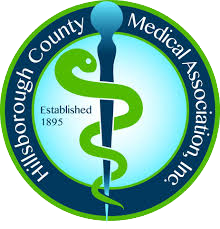 If you’re considering knee replacement surgery (knee arthroplasty) to address disruptive arthritis symptoms, you’re probably wondering what the recovery process will entail and how long it will take. Unfortunately, detailed answers to these questions may be difficult to find on the internet, as no two patients are exactly alike. Several factors such as your overall health, age, activity levels, and the specifics of your diagnosis will influence your recovery and how quickly you can return to your everyday routine.
If you’re considering knee replacement surgery (knee arthroplasty) to address disruptive arthritis symptoms, you’re probably wondering what the recovery process will entail and how long it will take. Unfortunately, detailed answers to these questions may be difficult to find on the internet, as no two patients are exactly alike. Several factors such as your overall health, age, activity levels, and the specifics of your diagnosis will influence your recovery and how quickly you can return to your everyday routine.
In general, though, recovering from knee replacement usually takes about 12 weeks, although a “full” recovery can take up to a year. Many patients remain in a hospital or surgery center for three to five days following the procedure. Here’s a brief overview of what you may be able to expect once discharged:
One to Three Weeks After Surgery
You’ll likely be encouraged to stand and walk for more than 10 minutes at a time, and to rely more on a cane than crutches. It’s also important to carefully follow your physician’s instructions regarding exercise and to closely watch for signs of infection. Taking prescribed pain medications according to directions and placing an ice pack on your knee can help ease any discomfort.
Four to Six Weeks After Surgery
You’ll be encouraged to adhere to any physical therapy regimens or exercises recommended by your physician, and slowly start to return to normal, everyday activities like driving and household chores. It’s also important to begin cutting back on pain medication at this point.
Seven to 12 Weeks After Surgery
You should continue your knee rehabilitation plan and focus on improving joint flexibility. If you’re comfortable, you may be able to return to low-impact physical activities like walking in comfortable shoes, yoga, and swimming.
More than 12 Weeks After Surgery
At this point, your physician will evaluate your progress and determine if ongoing rehabilitation is appropriate. You may be able to return to higher impact activities at this stage, although avoiding unnecessary knee strain is always recommended.
When is Knee Replacement Surgery Appropriate?
Knee replacement surgery is rarely a patient’s first course of knee pain treatment. While this procedure has a high success rate, non-surgical methods like physical therapy, activity modification, bracing, medication, and injection therapies are usually recommended before exploring joint replacement. A physician may recommend knee replacement surgery if:
- Your pain does not improve with conservative treatments
- Your pain is severe and prevents you from performing everyday activities
- Your pain persists or worsens while at rest
- You have sustained a severe knee injury
Understanding the basics of knee replacement surgery may also help you prepare for the recovery process and ease any anxiety about the procedure. If you have questions or concerns about knee replacement, the best step you can take is to speak with your physician.
Knee Replacement Surgery at Tampa Orthopaedic & Sports Medicine Group
Tampa Orthopaedic & Sports Medicine Group’s team includes Dr. Daniel Murphy, a board-certified orthopedic sports medicine surgeon who excels in knee replacement surgery and minimally invasive joint procedures. If you’d like to consult with Dr. Murphy about your knee pain treatment options, contact our friendly team today to schedule an appointment.












